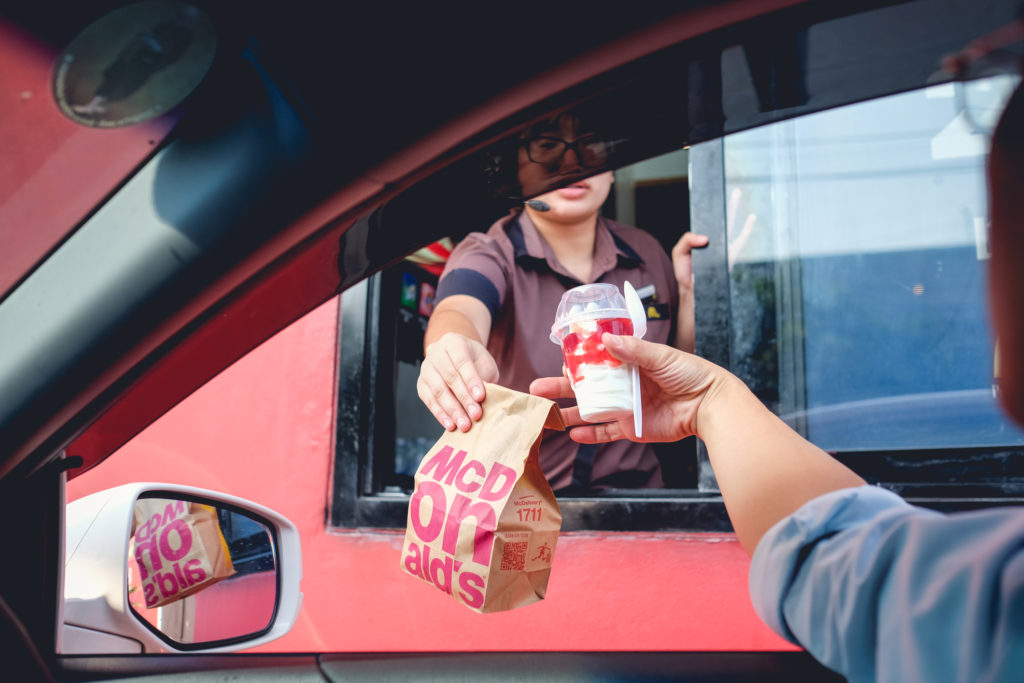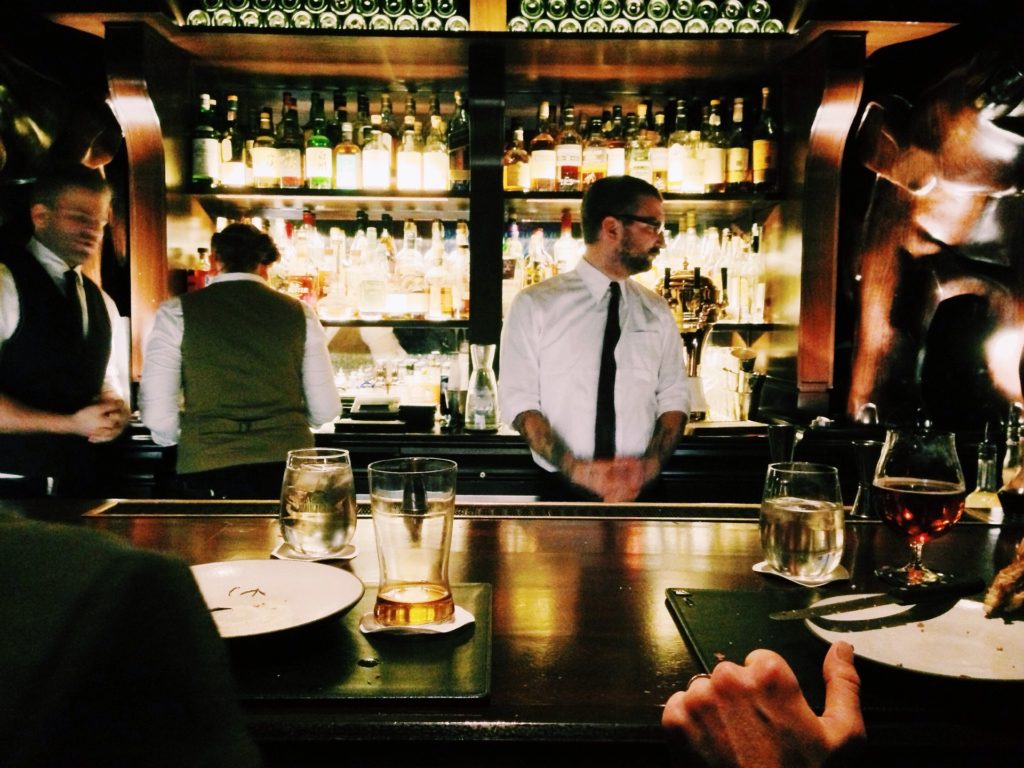
Before joining Jacobs Media as our VP/GM, Paul Jacobs was a dyed-in-the-wool radio sales guy. His first job out of school was selling time for the now-famous WNIC here in Detroit. Along the way, he repped WRIF, and then moved onto Dallas to generate revenue for the legendary KZEW (The Zoo) before going on to manage stations in The Big D and back in the Motor City.
Over the last two decades, Paul has conducted more sales meetings on behalf of rock-formatted radio stations than perhaps anyone in the business. He’s learned a lot over the years, but like many of us, his formative experiences came early in his career. In today’s blog, Paul takes us back to radio in a simpler time. And yet, the industry had many of the same challenges it has today.
So, put down your rate cards and your slick sales pieces, and pay attention. Paul’s speaking truth. – FJ
When I got my first job as a radio station General Manager, I was thrust into the position without a lot of training. I was in my early 30s, and had a lot more energy than experience. I relied mostly on my instincts, combined with lessons learned from people I’d worked for – the good ones and some of the others that perhaps could haven’t used a little training themselves.
Our station debuted with great ratings, and the sales team instantly found it easy to bring in orders. In fact, I got the sense they were spending more time drinking coffee and hanging around the fax machine waiting for orders (for those of you who are unfamiliar, the fax machine was a precursor to email, just a bit more analog). Sales intensity fell as revenue grew, and I got concerned that we were set up to fail – we were too dependent on ratings and were losing touch with our customers.
I needed a sales story.
At precisely the same time, United Airlines came out with an iconic commercial where the boss lamented being fired by the company’s biggest customer because they were doing too much business “on phone and via the fax.” He proceeded to hand out plane tickets to each salesperson so they could fly to visit their client because of the importance of a personal touch.
Inspired (and not knowing any better), I called a sales meeting and had each salesperson identify their most important account. I then told them to contact that client directly – not the agency – and explain they wanted to spend a day working for that business. That’s right, the McDonald’s rep worked at a fast food restaurant, serving customers. The Miller Beer rep actually rode a truck and visited bars and grocery stores, setting up displays and learning what retail marketing was all about.
The salespeople hated me for it, but it sure made a huge impression on our clients. Prior to that, they barely knew their radio reps, as the relationship was mostly based on ratings and rates, and managed by their ad agency, who didn’t really care if their rep knew anything about their client or not. Everything was transactional. And as it turned out, every one of those sales reps end up having an amazing and memorable experience.
And a great sales story.
Fast forward to today. The fax machine spitting out orders has been replaced by email. And we’re headed headlong toward a programmatic future, where the rep and media buyer are barely required. These business relationships have become even more impersonal and by the numbers than when I was cutting my teeth in the corner office. These days, many radio stations have become more like a commodity than a valued partner in a win:win relationship.
So, what’s your sales story?
If you don’t believe me, walk into your next sales meeting and ask each rep to identify their largest account. Then have them tell you what that client’s marketing objectives are. Once they get past the target demo and cost-per-point, odds are good the conversation will stall out.
The net effect is stations become little more than call letters on a computer screen, only as valuable as where the meters or diaries fell that week. Stations don’t stand out because their salespeople haven’t done anything to differentiate them. If everyone sells the same way, a level, flat, boring playing field is created. And that means reps don’t capitalize on their station’s unique advantages and assets. That’s the fastest path to buyers throwing in the towel and simply making their calls based on cost efficiency.
 So I was heartened last week to see the announcement that earlier this month, Bacardi shut down its operations and asked their 5,500 employees to spend a day in a bar, talking to bartenders, owners, and customers. Of course, they were encouraged to suggest Bacardi drinks and post on social media, but more importantly, the effort was designed to get the entire company back in touch with its customers.
So I was heartened last week to see the announcement that earlier this month, Bacardi shut down its operations and asked their 5,500 employees to spend a day in a bar, talking to bartenders, owners, and customers. Of course, they were encouraged to suggest Bacardi drinks and post on social media, but more importantly, the effort was designed to get the entire company back in touch with its customers.
As CEO Mahesh Madhavan said, “It puts our people in touch with what’s happening in our business in real life and real time — something you can’t truly understand behind a computer screen, sitting through a presentation, or dissecting a spreadsheet.”
Success in business comes in two ways: being better than your competition, or being different from them. So how does your sales effort stand apart from your competition? What are you doing to get closer to the actual client’s business, learning about their culture, goals, and unique attributes and then applying what you know to the development of actual business solutions? If the answer is “nothing,” than you are ceding your revenue growth to market forces: available radio revenue and where the PPM meters and diaries fall.
What’s your sales story?
 When I had my sales team walk in their clients’ shoes for a day, they weren’t happy. They signed up to sell radio, not flip burgers or unload trucks. But the results were amazing. I heard from many of these clients, gushing about how cool it was that we cared enough to do this. And of course, the media buyers were dumbfounded – how could they complain about this version of “going around the agency” when their clients were so happy and impressed?
When I had my sales team walk in their clients’ shoes for a day, they weren’t happy. They signed up to sell radio, not flip burgers or unload trucks. But the results were amazing. I heard from many of these clients, gushing about how cool it was that we cared enough to do this. And of course, the media buyers were dumbfounded – how could they complain about this version of “going around the agency” when their clients were so happy and impressed?
At a time when the industry is becoming more automated and mechanized, the sales team that humanizes the approach and works a little harder has a better chance of standing out from the pack. Equally as important, relationships will be formed and opportunities will emerge when sellers – and management – get out of the office and actually talk to their customers.
It’s noteworthy that at the end of the United Airlines commercial, the boss does more than send his sales teams on planes to visit their clients – he also leaves to go visit the client that fired him. This isn’t a task from a mean manager – it’s a culture shift that needs to permeate the entire organization from the top down.
Ten years after I left that radio station, I ran into the guy who owned the Miller Beer distributorship at a function. After catching up, he proceeded to take me around to his friends and colleagues, telling them the story of my sales rep who spent a day riding his trucks and delivering beer. A decade later, it still made an impression on him, despite the fact my station had changed formats twice and I was out of the business.
Numbers don’t sell. Stories and personal connections are what resonate.
So, what’s your sales story?
- For Radio, Will It Be Christmas In April (And Hopefully, May)? - April 21, 2025
- The Revolution Will Not Be Monetized - December 30, 2024
- What Kind Of Team Do You Want To Be? - October 4, 2024




Brilliant, hard-hitting, and sadly, all too real.
Biv, you and I pounded the streets during this time, and discovered that sales can be fun and profitable when you shake things up. No reason why broadcasters can’t do similar things today.
Thank you, Paul. It’s always nice to read that Sales can and should be regarded as more than negotiating a price and rather about establishing value by being customer-focused. Helping customers do more business by taking time to understand what that means, all that it means, helps any radio station ultimately do more business, too.
Leslie, agree, and customer focus can take many forms beyond asking them a bunch of questions. During this same period I read a book on the history of McDonalds – six months later I found myself at a dinner with one of the biggest franchisees in the country. I knew as much about the company as he did – that’s customer service. And back then, there was no Internet. Today, it’s so easy to learn a ton about a client.
For the times when ratings are great and the revenue is soft, and for the times when ratings are soft but revenue is great…. It’s always been about relationships and long term thinking, and avoiding “silo” thinking. Thanks for sharing, Paul and Fred!
Appreciate it, Keith. Sometimes we forget we’re in show biz, even on the sales side. The business has become way too transactional – sales teams that shake it up (smartly) have a big opportunity to stand apart from their competitors, and stand out to their clients.
Paul, this idea is so simple and brilliant on so many levels. It should be regularly applied to programming, too. How about PD’s and personalities hanging out with a real listener for all or part of a day. Experiencing what they experience. Not as easy to execute, but well worth whatever it takes.
Bill,
While I’m regularly called “simple,” I appreciate the “brilliant” part of your comment. Love your idea – this is how we need to approach our jobs. One thing I’ve learned is that radio isn’t brain surgery (hence the use of the word “simple”). It just requires we stop for a minute, bring people together and start throwing things up against the wall.
The power of HUMAN connection!
Thanks!
Exactly!
Yeah, it’s a pretty obtuse concept, isn’t it? And when so many aren’t practicing it and deal with their clients primarily through email and only when transacting, there’s an opportunity for those that try new things and work just a little bit harder to stand out.
Once again, you guys nail a piece that can truly differentiate our local radio station from a streaming service, or even our competitors in the local marketplace. Thank you for providing inspiring thoughts everyday. Keep on rockin’!
I appreciate that, Chris. The radio business isn’t brain surgery, but it does take just a little bit extra in order to stand out from the crowd. Pandora can’t do this. Many radio clusters wouldn’t think of doing this. But the smart, nimble, locally-oriented broadcasters can easily do this. And guess what my budget was for this – zero.
February 19, 2018 at 8:40 AM
Great post Paul, thanks for sharing. When I was at a newly launched station in a competitive market in Toronto we had to “try harder” than the market leaders. Then I got to a market leader and still maintained that “try harder” attitude/approach to clients that was ingrained in my sales MO. Today I am at yet another start up and guess what I help our team achieve… we “try harder” to get clients big or small the success that comes from using the medium fully and asking “what else” Not sue who coined the phrase but a great one to live by… “if we don’t take care of our customers, someone else will”
John Perras GSM Indie 88
Great comment, John. In my experience, the radio station that is just 10% better than its competition will emerge successful. Most stations sell the same way so the degree of difficulty of cutting through isn’t that high. Just a little bit of extra effort and creativity will go a long way.